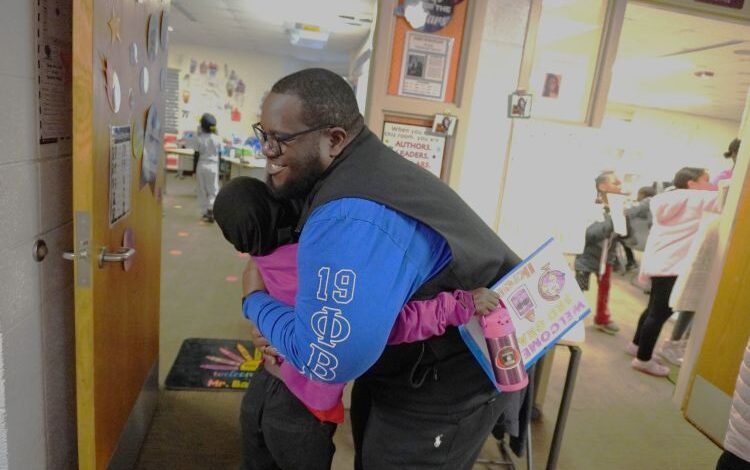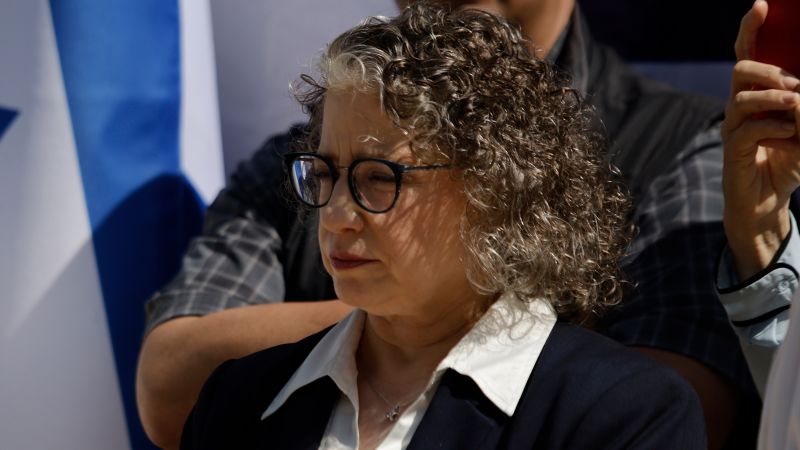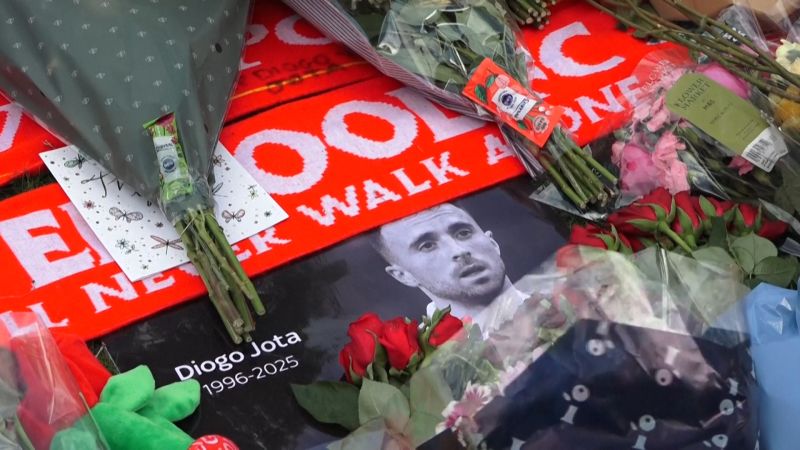Project ReACT Tackles Discipline Disparities in Kentwood Schools

Kentwood schools are implementing Project ReACT, a professional development initiative aimed at addressing disparities in student discipline referrals. This one-year program involves Challenger and Bowen elementary schools collaborating with the University of Oregon and the Multi-Tiered System of Supports (MTSS) team from the State of Michigan.
Morning greetings at these schools have become a hallmark of the initiative. Students choose how they wish to be welcomed each day, selecting from options like high fives, hugs, or salutes. This approach fosters a positive school climate, which is crucial for the initiative’s success. Challenger third-grader Javen Suggs opts for a salute each morning, expressing his desire to be a leader, while Naziah LaBlanc-Morrow prefers three warm hugs, stating, “They warm me up.”
Dwight Quinn, Principal of Challenger Elementary, highlights that these greetings are just one strategy aimed at improving connections between students and staff. A significant focus of Project ReACT is to reduce the racial disparities evident in office discipline referrals. Data from the 2024-25 school year revealed that Black students at Challenger were 1.4 times more likely to receive at least one referral, while those at Bowen faced an even greater disparity at 1.9 times.
Building Relationships and Equity
Project ReACT employs the Positive Behavioral Interventions and Support (PBIS) framework to assess whether certain student groups are not benefiting adequately from existing systems. This involves identifying strategies tailored to meet the needs of those students. One of the primary goals is to promote equity across disciplinary actions, ensuring all students receive fair treatment.
Quinn notes that the initiative involves recognizing students as individuals and celebrating their unique qualities. “This work is really just identifying our students for their unique selves,” he states. Teacher Tricia Nelson emphasizes the importance of personal connections, stating that the goal is to build deeper relationships, particularly with African American students, thereby increasing positive reinforcement.
A key element of the strategy is gathering insights from students about how they prefer to receive praise. Teachers conduct surveys to understand whether students appreciate public recognition or prefer private acknowledgment. This approach draws parallels to the concept of love languages, aiming to align praise with students’ cultural backgrounds and personalities.
Connecting School and Home
Another innovative strategy involves reaching beyond school walls. Staff members send postcards home to share students’ positive accomplishments, aiming to shift the narrative that often focuses on negative behaviors. “What we find is, often parents get too used to the school contacting them only when there is a negative situation,” Quinn explains. This strategy seeks to highlight the positive contributions every student makes to their school community.
Students at Challenger are also encouraged to reflect on behavior expectations in various contexts of their lives. Each student created personal matrices to complement the PBIS system. At Challenger, the system—abbreviated as SCORE—stands for safe, in control, organized, respectful, and giving their best effort. This exercise allows for meaningful discussions about how these expectations apply at home and in the community, fostering understanding between students and teachers.
At Bowen Elementary, Principal Mary Campione reports similar success with their Falcon Feathers system, which emphasizes being respectful, responsible, and safe. The exercise has prompted enlightening conversations regarding behavior expectations, revealing nuances that students face outside of school.
The impact of Project ReACT is already being felt in classrooms. Teachers like Heather Cobb at Challenger are witnessing firsthand the positive reactions from students during morning greetings. “It’s been a great opportunity for us to have more intentional conversations about what we are seeing in our school, what our numbers are saying and how we want to improve,” she shares.
For Principal Quinn, this initiative is especially meaningful. As a Black man who grew up with limited positive role models, he connects deeply with students who share similar backgrounds. “This has allowed me to realize the importance of education and how it can be a disruptor to negative social influences,” he says, reinforcing the belief that all students can achieve regardless of their socioeconomic status.
Through Project ReACT, Challenger and Bowen elementary schools aim not only to improve discipline equity but also to create a nurturing environment where every student feels valued and supported.






